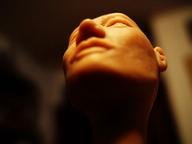Quiz Answer Key and Fun Facts
1. Though the roots of vampire belief almost certainly run into antiquity, the first well-documented episodes of vampire hunts come from the 18th-century European Enlightenment.
2. Many historians and folklorists believe that vampires first became popular in Western Europe because of a widely-published 1732 account by Austrian military surgeon Johannes Fluckinger. This report detailed Fluckinger's observation of a vampire hunt and how he and four colleagues were convinced that vampires were real. In what present-day country did Fluckinger find these vampires?
3. Fluckinger's popular article reminded many people of an earlier account by naturalist Pitton de Tournefort. One of the pioneering figures in plant and animal classification, Tournefort did not believe that what he had seen was actually a vampire (or "vrykolakas", as his account reads), but this did not stop later audiences from making these assumptions. Where did Tournefort have this encounter?
4. One of the great believers in vampires during the Enlightenment was Dom Augustin Calmet, a Biblical scholar and a great exponent of a Medieval brand of rational thought. In his thorough study, "Treatise on Ghosts and Vampires", Calmet builds his case for the reality of vampires by citing the reality of magic and the supernatural as verified by the Bible and by the saints of Catholic canon. He then extends that reasoning to "reliable" reports of vampires. To what Roman Catholic order did Calmet belong?
5. Vampire belief in the eighteenth century was wholeheartedly embraced by a sizeable minority, but rejected without reflection by most notable commentators. In the words of one observer: "If there is a well-attested history in the world, it is that of the vampires. Nothing is missing from it: interrogations, certifications by Notables, Surgeons, Parish Priests, Magistrates. The judicial proof is one of the most complete. And with all that, who believes in vampires?" What well-known author of "The Social Contract" and "Emile" summed up the paradoxical situation of the Enlightenment vampire with these examples?
6. As vampire tales grew more popular during the 18th century, even the most learned of people began to incorporate them into their everyday speech. What great figure of English letters compared himself to "the vampires in Germany - such a terror to all sober and innocent people that many wish a stake were drove through him to keep him quiet in his grave"?
7. One Enlightenment figure who was particularly mortified by the vampire craze of his time wrote the following: "What! Is it in our eighteenth century that vampires exist? Is it after the reigns of Locke, Shaftesbury, Trenchard, and Collins [all well-known rationalists of the past]? Is it under those of d'Alembert, Diderot, St. Lambert, and Duclos, that we believe in vampires, and that the reverend father Dom Calmet...has printed and reprinted the history of vampires with the approbation of the Sorbonne?" What author of "Candide" was so chafed that vampire belief had gained such currency under his watch?
8. For the Enlightenment's cornerstone work, the "Encyclopédie", contributor Louis de Jaucourt offered this analysis of vampire folklore: "Father Calmet has written an absurd, unbelievable work on the subject, but one that is useful in showing how the human spirit can be carried away by superstition." Who was the editor-in-chief of this work?
9. In 1751, chief physician of the Holy Roman Empire Gerard van Swieten gave a scathing report on the vampire exhumations and mutilations common in Central Europe at the time, stating bluntly that those hunting the vampires had no idea what a dead body ought to look like, and thus could not tell a "vampire" from any other mortal remains. In response, the Holy Roman Empress officially banned vampire hunts in 1755. Who was this long-reigning Habsburg Empress?
10. A latecomer to the Enlightenment, this seminal German Renaissance man (to mix historical metaphors) produced one of the first substantial works of vampire literature in his fine 1797 poem "The Bride of Corinth". Who was this towering writer who was no stranger to dealing with the devil?
Source: Author
stuthehistoryguy
This quiz was reviewed by FunTrivia editor
bloomsby before going online.
Any errors found in FunTrivia content are routinely corrected through our feedback system.


